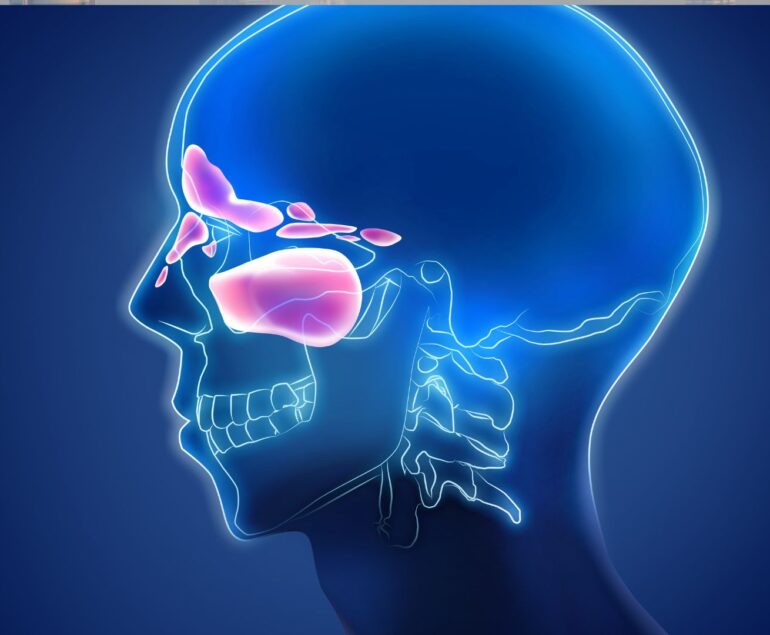In today’s fast-paced world, maintaining good health is more important than ever. As an ENT surgeon, I have witnessed firsthand the profound impact that nutrition can have on ear, nose, and throat (ENT) health and healing. In this blog post, we will delve into the crucial relationship between nutrition and ENT health, exploring how dietary choices can influence our ability to prevent and recover from various ENT conditions.
Understanding ENT Health
ENT health encompasses the well-being of our ears, nose, and throat. These interconnected systems play vital roles in our sensory perception, respiratory function, and overall communication. Common ENT conditions include ear infections, sinusitis, allergies, and throat disorders.
The Role of Nutrition in ENT Health
Nutrition plays a significant role in maintaining optimal ENT health. A well-balanced diet provides essential nutrients that support the immune system, reduce inflammation, and promote tissue repair. Key nutrients for ENT health include vitamins A, C, and E, zinc, omega-3 fatty acids, and antioxidants.
Impact of Diet on Hearing
Dietary habits can directly influence hearing health. Consuming excessive amounts of processed foods, sugar, and unhealthy fats may contribute to inflammation and oxidative stress, potentially leading to hearing loss over time. Conversely, a diet rich in fruits, vegetables, whole grains, and lean proteins can help preserve hearing acuity.
Nutrition and Sinus Health
The foods we eat can impact sinus health as well. Certain foods, such as spicy peppers, ginger, and garlic, possess anti-inflammatory properties that can alleviate sinus congestion and promote drainage. Additionally, staying hydrated is essential for maintaining mucous membrane integrity and preventing sinus infections.
Maintaining a Healthy Throat with Proper Nutrition
A well-nourished throat is less susceptible to infections and irritation. Incorporating soothing foods like warm soups, herbal teas, and honey can help alleviate throat discomfort and support healing. Avoiding irritants such as alcohol, caffeine, and tobacco smoke is also crucial for throat health.
Preventing Ear Infections Through Diet
Ear infections are often linked to underlying immune system imbalances. By consuming a nutrient-rich diet that includes probiotics, vitamin D, and zinc, individuals can bolster their immune defenses and reduce their risk of developing ear infections. Additionally, practicing good hygiene, such as washing hands regularly, can help prevent the spread of bacteria that cause ear infections.
Healing ENT Conditions with Nutrition
Incorporating specific nutrients into one’s diet can aid in the healing process of ENT conditions. For example, vitamin C promotes collagen synthesis, essential for tissue repair in the ears, nose, and throat. Omega-3 fatty acids possess anti-inflammatory properties that can reduce swelling and discomfort associated with ENT disorders.
Nutrition Tips for Overall ENT Wellness
To maintain optimal ENT wellness, individuals should prioritize a diet rich in whole foods, including plenty of fruits, vegetables, lean proteins, and healthy fats. Adequate hydration is also crucial for keeping mucous membranes moist and preventing dryness, which can contribute to ENT issues.
The Importance of Hydration
Proper hydration is essential for overall health, including ENT health. Drinking an adequate amount of water helps thin mucus secretions, making them easier to expel and reducing the risk of sinus congestion and throat irritation. Aim to drink at least eight glasses of water per day, and adjust intake based on activity level and climate.
Supplements for ENT Health
While a balanced diet should provide most of the nutrients needed for ENT health, supplements can be beneficial for individuals with specific deficiencies or dietary restrictions. However, it’s essential to consult with a healthcare professional before starting any new supplement regimen to ensure safety and efficacy.
The Gut-ENT Connection
Emerging research suggests a strong connection between gut health and ENT health. Probiotic-rich foods like yogurt, kefir, and sauerkraut support a healthy gut microbiome, which in turn can bolster the immune system and reduce inflammation throughout the body, including the ears, nose, and throat.
Foods to Avoid for Optimal ENT Health
Certain foods can exacerbate ENT issues and should be limited or avoided altogether. These include processed foods high in sugar and unhealthy fats, as well as allergenic foods like dairy and gluten, which may trigger inflammatory reactions in susceptible individuals.
Educating Patients on Nutrition for ENT Health
As healthcare providers, it’s essential to educate patients about the role of nutrition in maintaining ENT health. Providing resources such as dietary guidelines, meal plans, and recipe ideas can empower patients to make informed choices that support their overall well-being.
Conclusion
In conclusion, nutrition plays a pivotal role in promoting ENT health and facilitating healing from ENT conditions. By adopting a balanced diet rich in essential nutrients and incorporating healthy lifestyle habits, individuals can safeguard their ears, nose, and throat against disease and dysfunction. Remember, small dietary changes can yield significant benefits for long-term ENT wellness.
FAQs
- Can dietary changes really improve my ENT health? Absolutely! A nutritious diet can strengthen your immune system, reduce inflammation, and support tissue repair, all of which are essential for maintaining healthy ears, nose, and throat.
- Are there any specific foods I should eat to prevent ear infections? Foods rich in vitamin C, zinc, and probiotics can help boost your immune system and reduce your risk of developing ear infections. Examples include citrus fruits, nuts, seeds, and yogurt.
- Can dehydration affect my ENT health? Yes, dehydration can lead to dryness in the ears, nose, and throat, making you more susceptible to infections and irritation. Be sure to drink plenty of water throughout the day to stay hydrated.
- Are there any supplements that can improve ENT health? While a balanced diet should provide most of the nutrients needed for ENT health, supplements such as vitamin D, omega-3 fatty acids, and probiotics may be beneficial for some individuals. Consult with a healthcare professional for personalized recommendations.
- How can I incorporate more nutrient-rich foods into my diet? Try incorporating a variety of colorful fruits and vegetables, whole grains, lean proteins, and healthy fats into your meals and snacks. Experiment with new recipes and cooking methods to keep your meals exciting and nutritious.
About Author:
Dr. Vivek Kumar Pathak: Renowned ENT Surgeon, Senior Professor, and Founder.
Dr. Pathak, ENT surgeon at Kailash Hospital, Senior ENT Professor at Sharda University, and founder of Entegrity Care, brings expertise and innovation to healthcare. Discover the visionary behind Doxtreat Healthcare, shaping the future of ENT care.
Website www.drvivekpathak.com
Call +917838450942
WhatsApp +91 78384 50942
Book an appointment with Dr. Vivek kumar Pathak by filling the form.




